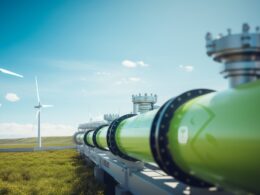Brazilian authorities have suspended the construction of an electric vehicle (EV) factory for Chinese automaker BYD in the northeastern state of Bahia after more than 160 workers were found living in conditions likened to “slavery,” according to the Public Labour Prosecutor’s Office (MPT).
The workers, hired by Jinjiang Construction Brazil, reportedly endured a “degrading” environment, with withheld passports and salaries. They lived in overcrowded accommodations in Camaçari city, where they shared bathrooms with as many as 31 others and slept on beds without mattresses. Prosecutors described the conditions as an “alarming picture of precariousness and degradation.”
BYD, which had planned to open its first EV plant outside Asia by March 2025, stated it had severed ties with the construction firm and moved the affected workers to hotels. The company reaffirmed its commitment to adhering to Brazilian laws and said it had previously urged the contractor to improve conditions for employees.
Under Brazilian law, “slavery-like conditions” include practices such as debt bondage, withholding wages, and work environments that violate human dignity. The MPT also classified the situation as “forced labour,” citing the financial penalties workers faced for terminating their contracts.
BYD, an EV leader that outsold Tesla in late 2023, has been expanding in Brazil, its largest overseas market. It operates a factory in São Paulo producing electric bus chassis and announced a $484.2 million investment in 2022 to build the Bahia EV plant.
The incident comes as EVs continue gaining traction globally, boosted by government subsidies in China. However, Chinese automakers face growing criticism abroad over perceived unfair advantages from domestic policies, leading to tariffs from major markets such as the US and EU.





















